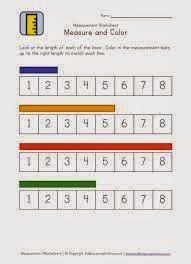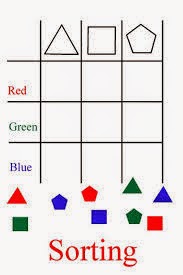How do you identify creative kids?
 1. They are imaginative, resourceful and uninhibited.
1. They are imaginative, resourceful and uninhibited.
2. They are open to new ideas and see things in a different way.
3. They are curious, alert, and adventurous and risk taking.
4. They are independent in thinking and social behavior.
5. They are inventive and good at solving problems.
6. They love challenges and are easily bored with routine and mundane tasks.
Kindergarten Maths activities which develop creative thinking encourage the kids to think critically, using their existing knowledge to explore new ways of thinking. We can incorporate language, music or math into these activities and for this article we will discuss on using math to develop creativity.
Whenever the word math is mentioned, numbers and formulas come into the picture. Math is more than just number crunching but when it is being introduced to kids creatively, can improve skills like reasoning, logic and problem solving and also widen the kids understanding of Math to a wider scope as listed below:
1. To enable the kids to sort objects in a logical series according to size, shape or any other characteristic.
Find objects of different shapes like a book, a clock, a piece of sandwich or pizza, a photo frame, a ball, a pencil case. Put them together and ask the child to group them according to their size. For example a book is a rectangle, what other objects here are rectangle shapes.
You can invent different kindergarten activities by finding objects of different sizes or talk about animals and ask them what animals are big and small.
2. To enable the kids to understand the concept of numbers by letting them have direct experience with objects as the kids will discover that numbers are not just digits but extend to our everyday lives.
Kindergarten activities which kids under five need are songs, rhymes and finger plays that include numbers like Little Indian Boys/Girls, while singing, finger play with them, show your fingers while singing One Little, Two Little, Three Little Indians and so on.
You can also ask questions like - Mummy bought 5 apples and put them in the refrigerator yesterday. You ate one apple and Daddy ate two, so how many apples are in the refrigerator now? Allow the kids to answer and ask them to check the refrigerator to see whether they are correct.
3. To develop their spatial skills by discovering how to fit things together, take things apart, rearrange things and navigation.
Kids with well developed spatial skills are very creative, dramatic, artistic and musical. Some kindergarten activities which encourage spatial skills are playing with Lego, tangram, mazes, play dough and chess.
Engage your kids in creative thinking activities the whole day while you are preparing your meals, gardening or clearing your laundry by asking open-ended questions which are worded in such a way that there is no one correct answer. An example is while clearing your groceries asks your kids what they can do with this tomato. Open-ended questions like this engage the kids in divergent or creative thinking to come up with a whole range of brilliant and imaginative ideas.


















